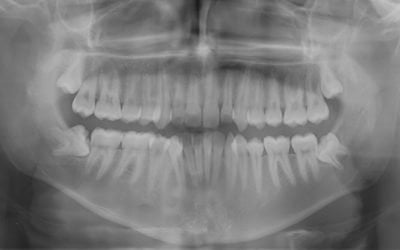What Happens to Untreated Wisdom Tooth?


Firstly, they come all the way through, so you can get to them well and keep everything clean. They work just like any other tooth in your mouth.

Secondly, they remain completely submerged underneath the gum and enclosed in bone. In this situation treatment is often not required and regular monitoring with x-rays is all we need to do.

Finally, the situation between these 2, where the wisdom teeth do emerge at least partially from the bone but do not come through far enough that they can be properly looked after. These are the wisdom teeth that tend to cause the majority of the problems and these are the ones we mostly recommend removing.
The second and third types of wisdom teeth are called impacted wisdom teeth. This simply means that something is preventing the wisdom tooth from coming all the way through. It may either be the tooth in front and the angle that the wisdom tooth is growing or it may just simply be that there is not enough space.
The decision to remove wisdom teeth is made by weighing up the risks of leaving them in place against the risks of issues occurring when they are removed.
In this blog we will talk about the risks if you do decide not to have these potentially problematic teeth removed.
Infection
Because the teeth have not come all the way out of the gum, you are not able to keep everything properly clean. This means that food and bacteria can get easily underneath the gum and this can cause infection.
If you feel like your wisdom teeth are pushing up and then sinking down it is not actually moving up and down. What is happening is a mild infection is occurring around the wisdom tooth, which is causing pressure and that is what the feeling of the wisdom teeth coming up is.
In more severe cases, this infection can flare up leading to severe pain swelling, limitation citations in opening your mouth and in rare cases can spread underneath the jaw into your throat.
Decay
Again, because you are not able to keep this area properly clean, decay is common not just in impacted wisdom teeth but in the tooth in front. If the decay does occur to the tooth in front, it is often down on the root and extremely difficult to gain access to and in some cases, both the wisdom tooth and the molar in front have to be removed.
Secondly, if the decay is in the wisdom tooth it makes the tooth softer and more difficult to remove.
Finally, if this decay spreads far enough it can lead to an abscess forming in the bone underneath the wisdom tooth.
Cysts and Other Changes
Healing
If you have any concerns about your wisdom teeth, please give our reception team a call on 07 4942 3272, and we can give you an expert opinion on how to approach them.
The content has been made available for informational and educational purposes only. Plaza Dental does not make any representation or warranties with respect to the accuracy, applicability, fitness, or completeness of the content.
The content is not intended to be a substitute for professional personal diagnosis or treatment. Always seek the advice of your dentist or another qualified health provider with any questions you may have regarding a dental or medical condition. Never disregard professional advice or delay seeking it because of something you have read or seen on the Site.
Services we mentioned:
Related Articles
Can Having Bad Oral Health Affect An Entire Country?
Can Having Bad Oral Health Affect An Entire Country? If it does, it sure makes ignoring and neglecting our oral health...
When Should Wisdom Teeth Be Removed?
Wisdom teeth that cause pain or discomfort is a very common complaint. Often this pain recurs and patients wonder if we should…








